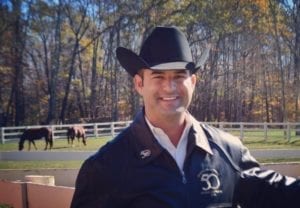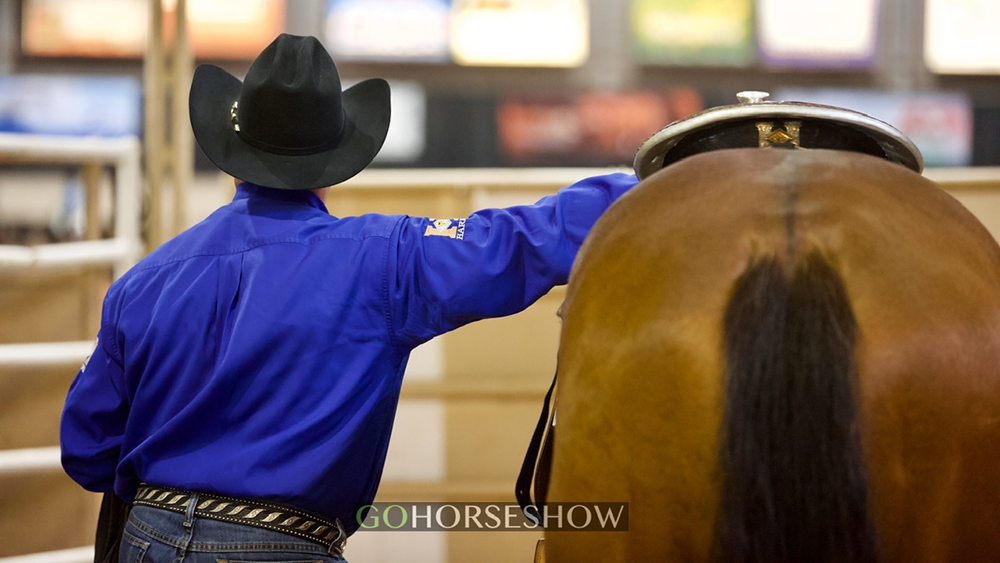Social media has revolutionized the horse industry as a whole. Trainers can now communicate with potential clients across the globe, stallions can reach a wider audience at lower upfront costs, horses are bought and sold sight unseen off of social media ads, and show results are now live-streamed for immediate dissemination.
The horse world has always been small, but social media seems to have simultaneously expanded and contracted the industry. Now, more people than ever can participate in industry dialog through social media posts. Often, positive exchanges of ideas come from social media chatter, but at other times, conversations can seem to spiral somewhat out of control in a negative direction. The immediate communication that takes place screen-to-screen instead of face-to-face has created new issues for which breed associations are having to respond.
We spoke with David Dellin (APHA Senior Director of Judges), Stephanie Lynn (NSBA Executive Director), and Justin Billings (AQHA Chief Show Officer), for some pointer on how to air grievances to inspire positive industry change, while avoiding tearing it down in the process.
 David Dellin: According to Dellin, there are two main ways to get involved in APHA in order to be a catalyst for change.
David Dellin: According to Dellin, there are two main ways to get involved in APHA in order to be a catalyst for change.
The first method is to contact staff members of the association directly, either by phone, email, or in person, in order to address concerns or offer suggestions for positive changes.
The second ideal way to get involved is to actually join committees within the association. Dellin reminds readers that all major breed associations are member-run, and therefore, “if you have the time and the gumption to get involved,” he highly recommends you do so. This second method is the most directly effective way to inspire change in the industry.
If you want to create change in what the judges are looking for, David believes the best way to do so within APHA is to reach out to judges committee members. “These committee members help set the policy and the rules that the judges apply when evaluating horses and riders.” Therefore, they are in the best position to propose rule changes to bring about new standards for judges.
If you want to propose additional changes, APHA lists all the committees on the website and gives contact information for everyone on each committee. The more emails that come to the various committees expressing a similar desire to see specific changes, the more likely it is those members will make that a priority to address. All members can have a voice if they take time to go to the appropriate committees with concerns or proposals.
David cautions that, “Whenever you post something on social media, you never quite know your audience. So, if you post negative statements about a breed or discipline, it affects the industry by possibly discouraging others from getting involved.”
Additionally, Dellin warns that, “Once you create a post, it is difficult to control what other people say on the thread. Indeed, you may have one intention with your post, and then the comment thread can steer that completely off the rails.”
Often nobody wins when issues are addressed on social media. Therefore, if the intention is one of inspiring change, doing it through the association itself is your best bet to see the change through.
 Stephanie Lynn: Lynn says that her initial advice to people seeking to address an issue in any industry is to, “do their homework before commenting.”
Stephanie Lynn: Lynn says that her initial advice to people seeking to address an issue in any industry is to, “do their homework before commenting.”
She recommends asking yourself the following questions: “Do you understand both sides of the argument? Are you spreading gossip, or do you genuinely care about change? Have you consulted your rulebook to see if the issue is already addressed? Are you prepared for the ramifications of your commentary?”
Lynn reminds readers that the association rulebook will indicate who you can contact within the association to address change. All associations have methods for addressing rule changes.
To initiate a rule review at NSBA, members can email the association with proposed rule changes that include an explanation of why they are proposing the change.
Overall, Lynn prefers that people contact the governing association directly with issues. She says, “Anonymous calls don’t really do any good and are just hearsay that associations cannot act on. If you see something happening that is wrong, please report it. The association representatives can’t be every place at once, and so it takes some courage to contact leadership directly and put your name to your complaint.”
Lynn encourages, “Don’t be afraid to take action on behalf of the animals and the industry. Legitimate concerns require legitimate action. While we don’t want to be inundated with ‘ticky–tacky’ concerns, animal welfare is always important.”
She believes people often keep quiet because they assume their voice doesn’t matter or they think someone else will report it. “NSBA takes safety concerns seriously, regardless of who reports them. If everyone turns a blind eye, then people and animals can be harmed.”
Within NSBA, if you write a formal complaint, there is a procedure for addressing that because the association has to ensure due process in its response. These processes take time in order to ensure the truth comes to light and the association is fair to all involved.
Generally, Lynn thinks airing grievances online tends to do more to hurt the industry. She feels, “The commentary tends to say more about the commentator than the issue they want to address.”
Lynn is “a big believer in leading by example. Negative comments online don’t tend to spread positivity. They just fuel a fire that creates more polarization and animosity. It doesn’t help the animal and doesn’t portray the sport in a good light.”
If people genuinely care about positive change, they should take it to their respective association in the manner laid out in the rulebook. It may take time, but Lynn assures it will be addressed. And, in most circumstances, the association is already aware of issues and working behind the scenes to make positive changes.
 Justin Billings: Billings reminds readers, “By definition, AQHA is an association of members. There are 230,000 passionate horse lovers from around the world who have banded together to make up the AQHA family. While families do have differences, I would suggest addressing those in a positive manner by bringing a viable solution to the table.”
Justin Billings: Billings reminds readers, “By definition, AQHA is an association of members. There are 230,000 passionate horse lovers from around the world who have banded together to make up the AQHA family. While families do have differences, I would suggest addressing those in a positive manner by bringing a viable solution to the table.”
According to Billings, “AQHA is made up of over 200 employees who love our members and understand the importance of leaving the association better than we found it for the next generation.”
AQHA has staff members whose primary purpose is to ensure the integrity of AQHA competition for all members. Show related grievances can be shared with them via email at [email protected], where member concerns are vetted.
Justin encourages members to attend the annual convention and participate in the process of bettering the association by voting on resolutions and rule changes.
Rule change proposals are accepted each year until December 31 and then sent to one of 13 standing committees ranging from shows to international and several in between. Those committees are made up of members who volunteer their time to serve the association and guide it forward. Billings recommends members visit www.aqha.com/convention for more specifics on the process and information on how you can get involved.
“Ultimately, we want the same thing: a thriving horse community. We can accomplish that and so much more by moving in the same direction together. Collectively, we may not get it right the first time, but that won’t stop us from trying again until it is right.”
***
Change is often slow and, when someone is legitimately frustrated or concerned, it can be hard to pursue the long road to making a difference. But, it is important to remember that the majority of people in our industry, despite their differing perspectives, are here because they love horses.
You can’t train a horse if you don’t respect the animal. And you can’t fix an industry if you don’t respect the people in it. Let’s stand together to promote positive change for the benefit of the horses, all of us who love them, and those whose livelihoods depend on them.









